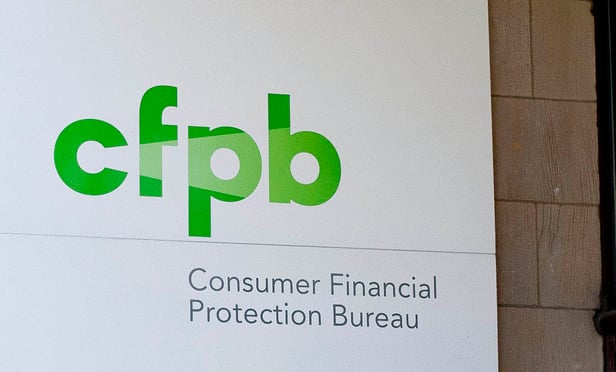 Consumer Financial Protection Bureau building in Washington, D.C. Photo by Diego M. Radzinschi
Consumer Financial Protection Bureau building in Washington, D.C. Photo by Diego M. Radzinschi
The CFPB's process of issuing Civil Investigative Demand letters does not allow targets with sufficient time to respond to what many see as fishing expeditions by the agency," credit union trade groups say.
"CUNA has observed indicators that broad Bureau CIDs are leading to multi-year fishing expeditions that are both burdensome to recipients and an inefficient use of government resources," Elizabeth A. Eurgubian, CUNA's deputy chief advocacy officer and senior counsel, said in a comment letter filed with the CFPB.
Recommended For You
The CID process act "carries substantial consequences and is considered one of the most invasive forms of government involvement in the public sphere," said Alexander Monterrubio , NAFCU's director of regulatory affairs said.
The comments came in response to the first of the agency requests for information about how the bureau operates. Acting Director Mick Mulvaney issued the requests following the resignation of Director Richard Cordray.
A coalition of consumer groups is questioning the need for the request for information process and is charging that the agency has skewed it in favor of regulated companies.
"This process weighted in industry's favor is not consistent with the CFPB mandate to focus on consumer protection," the groups, including Allied Progress, the Center for Responsible Lending and Americans for Financial Reform charged in a letter filed with the agency.
In her letter, Eurgubian said there is no agency policy that encourages informal meetings before a CID is issued. Such a policy would result in a more effective enforcement process, she added.
She also said that it is unreasonable for the CFPB to schedule a "meet-and-confer" session ten days after a company receives a CID, adding that credit unions cannot complete a meaningful analysis of a demand letter within ten days.
Monterrubio said that the CFPB is permitted to be vague about the charges in a CID.
"Under this procedure, financial institutions are confronted with vague boilerplate language on the scope of the investigation in the CID," he said.
Meanwhile the consumer agencies charged that the entire agency process of soliciting comments on its activities is unfair.
"The questions posed in the Requests for Information are slanted towards a weakening of the Bureaus role in protecting consumers," they said. "Few, if any, requests are about where or how the Bureau should take stronger action against financial industry abuses."
And they charged that the decision to issue a new request for information every week gives the financial industry an unfair advantage, since companies have tremendous resources to address such issues, compared with consumer groups.
© Touchpoint Markets, All Rights Reserved. Request academic re-use from www.copyright.com. All other uses, submit a request to [email protected]. For more inforrmation visit Asset & Logo Licensing.






